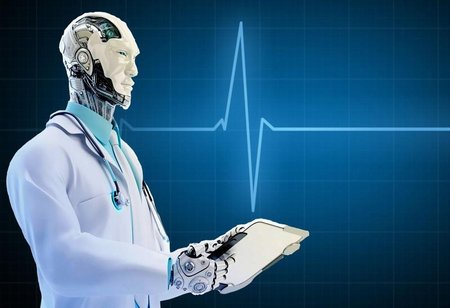
IEEE's New Report Shows Growing Level of Trust in Millennial Parents for AI-based Health Care


CEO Insights Team
The report shows a majority of parents (US: 52 percent; UK: 60 percent; Brazil: 75 percent; India: 92 percent; China: 94 percent) would be very comfortable allowing a properly tested/fully functional 3D printed heart to be implanted in their child if needed in the future.
The report also states how technology and digital innovations are revolutionizing the world of healthcare. Some of the innovative solutions are mentioned below.
Human donor organ availability can mean the difference between life and death. But researchers are using 3D printing technologies to develop organs, including hearts that use human cells, collagen, and biological molecules.
Virtual reality-powered headsets can immerse people in 3D virtual environments and because of this distraction, VR is being used for pain management.
Though telehealth, AI and remote monitoring tools are helping nursing expand care beyond in-person bedside monitoring creating a practically virtual nurse, a majority of Millennial parents in China (88 percent), India (83 percent) and Brazil (61 percent) would be very
comfortable leaving their child at the hospital in the care of an AI-powered virtual nurse.
Surgical robots powered by artificial intelligence are bringing new innovations and accuracy to the operating room.
Machine learning is helping clinicians diagnose rare diseases by analyzing patient photos and correlating detected irregularities with rare genetic diseases. Millennial parents concerned about their child are universally comfortable using this technology to seek answers, though those in Asia are the most comfortable.
AI and sensor technologies are powering a growing number of ‘smart’ devices, from voice-enabled speakers to refrigerators with interior cameras that can monitor if milk is running low. In the future, smart furniture may be embedded with sensors that measure biometrics such as weight, blood pressure, and heart rate. Universally, Millennial parents would be very interested (US: 63 percent; UK: 66 percent; Brazil: 86 percent; China: 92 percent; India: 94 percent) in having a smart chair in their home that could automatically conduct health tests.
Artificial Intelligence technologies are being used to improve diagnoses for certain types and grades of cancer. A majority of Millennial parents worldwide say they would be very likely to seek out a doctor using AI for cancer diagnoses should their child or a family member need such an evaluation. A majority of Millennial parents in China (94 percent), India (88 percent) and Brazil (78 percent) would be very likely to seek out a doctor using AI for cancer diagnoses for their child or a family member, while 59 percent of UK parents and 53 percent of US parents are very likely to do so.
Considered to be the most tech-infused demographic, born 2010-25, Generation Alpha is growing up with AI benefiting their health and wellness, and technology infiltrating nearly every aspect of their lives. "Generation AI 2019: Third Annual Study of Millennial Parents of Generation Alpha Kids" surveyed 2,000 parents, aged 23–38 years old, with at least one child nine years old or younger, 400 each in the United States, United Kingdom, India, China, and Brazil. The surveys were conducted from 2nd to 9th of October, 2019.
Surgical robots powered by artificial intelligence are bringing new innovations and accuracy to the operating room.
Machine learning is helping clinicians diagnose rare diseases by analyzing patient photos and correlating detected irregularities with rare genetic diseases. Millennial parents concerned about their child are universally comfortable using this technology to seek answers, though those in Asia are the most comfortable.
AI and sensor technologies are powering a growing number of ‘smart’ devices, from voice-enabled speakers to refrigerators with interior cameras that can monitor if milk is running low. In the future, smart furniture may be embedded with sensors that measure biometrics such as weight, blood pressure, and heart rate. Universally, Millennial parents would be very interested (US: 63 percent; UK: 66 percent; Brazil: 86 percent; China: 92 percent; India: 94 percent) in having a smart chair in their home that could automatically conduct health tests.
Artificial Intelligence technologies are being used to improve diagnoses for certain types and grades of cancer. A majority of Millennial parents worldwide say they would be very likely to seek out a doctor using AI for cancer diagnoses should their child or a family member need such an evaluation. A majority of Millennial parents in China (94 percent), India (88 percent) and Brazil (78 percent) would be very likely to seek out a doctor using AI for cancer diagnoses for their child or a family member, while 59 percent of UK parents and 53 percent of US parents are very likely to do so.
Considered to be the most tech-infused demographic, born 2010-25, Generation Alpha is growing up with AI benefiting their health and wellness, and technology infiltrating nearly every aspect of their lives. "Generation AI 2019: Third Annual Study of Millennial Parents of Generation Alpha Kids" surveyed 2,000 parents, aged 23–38 years old, with at least one child nine years old or younger, 400 each in the United States, United Kingdom, India, China, and Brazil. The surveys were conducted from 2nd to 9th of October, 2019.